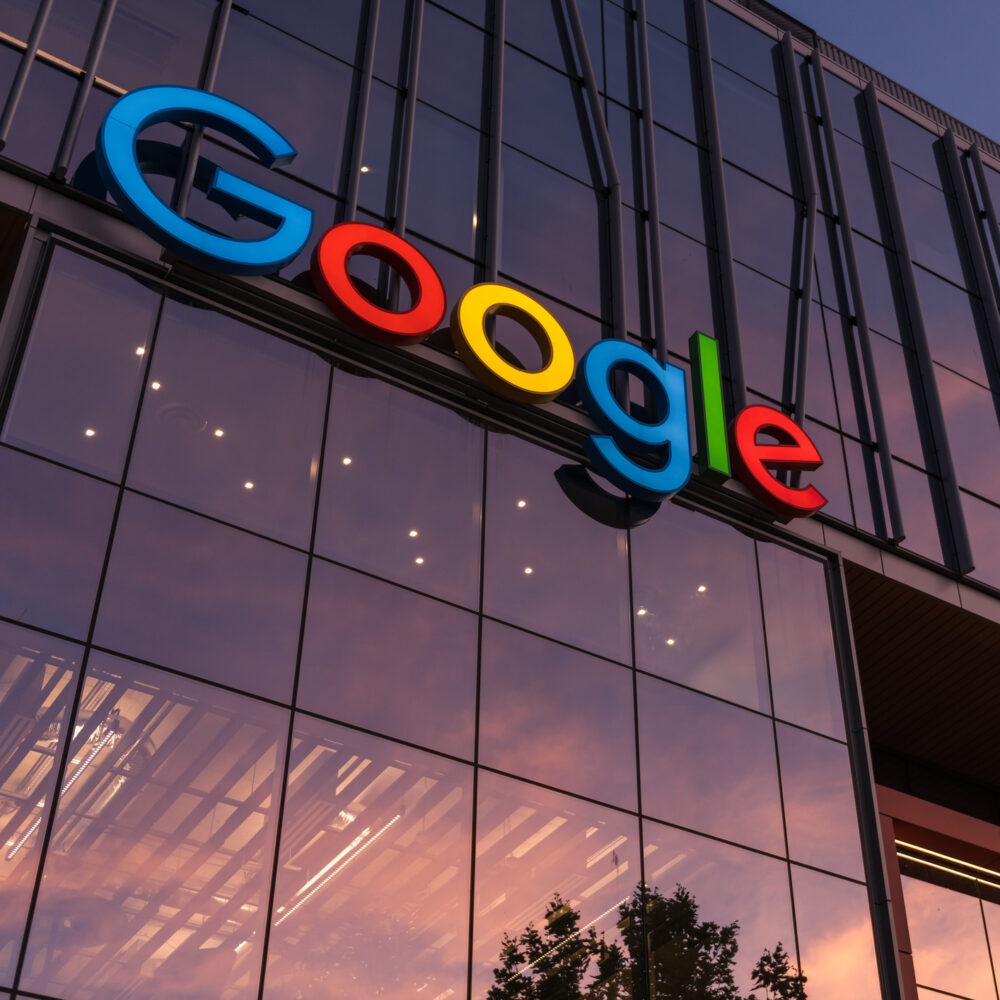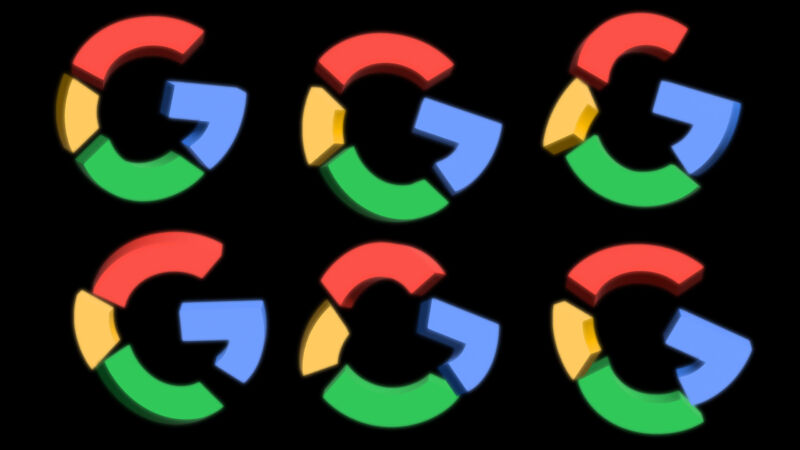DOJ proposes breakup and other big changes to end Google search monopoly
Google called the DOJ extending search remedies to AI “radical,” an “overreach.”

The US Department of Justice finally proposed sweeping remedies to destroy Google’s search monopoly late yesterday, and, predictably, Google is not loving any of it.
On top of predictable asks—like potentially requiring Google to share search data with rivals, restricting distribution agreements with browsers like Firefox and device makers like Apple, and breaking off Chrome or Android—the DOJ proposed remedies to keep Google from blocking competition in “the evolving search industry.” And those extra steps threaten Google’s stake in the nascent AI search world.
This is only the first step in the remedies stage of litigation, but Google is already showing resistance to both expected and unexpected remedies that the DOJ proposed. In a blog from Google’s vice president of regulatory affairs, Lee-Anne Mulholland, the company accused the DOJ of “overreach,” suggesting that proposed remedies are “radical” and “go far beyond the specific legal issues in this case.”
From here, discovery will proceed as the DOJ makes a case to broaden the scope of proposed remedies and Google raises its defense to keep remedies as narrowly tailored as possible. After that phase concludes, the DOJ will propose its final judgement on remedies in November, which must be fully revised by March 2025 for the court to then order remedies.
Even then, however, the trial is unlikely to conclude, as Google plans to appeal. In August, Mozilla’s spokesperson told Ars that the trial could drag on for years before any remedies are put in place.
In the meantime, Google plans to continue focusing on building out its search empire, Google’s president of global affairs, Kent Walker, said in August. This presumably includes innovations in AI search that the DOJ fears may further entrench Google’s dominant position.
Scrutiny of Google’s every move in the AI industry will likely only be heightened in that period. As Google has already begun seeking exclusive AI deals with companies like Apple, it risks appearing to engage in the same kinds of anti-competitive behavior in AI markets as the court has already condemned. And giving that impression could not only impact remedies ordered by the court, but also potentially weaken Google’s chances of winning on appeal, Lee Hepner, an antitrust attorney monitoring the trial for the American Economic Liberties Project, told Ars.
Ending Google’s monopoly starts with default deals
In the DOJ’s proposed remedy framework, the DOJ says that there’s still so much more to consider before landing on final remedies that it reserves “the right to add or remove potential proposed remedies.”
Through discovery, DOJ said that it plans to continue engaging experts and stakeholders “to learn not just about the relevant markets themselves but also about adjacent markets as well as remedies from other jurisdictions that could affect or inform the optimal remedies in this action.
“To be effective, these remedies… must include some degree of flexibility because market developments are not always easy to predict and the mechanisms and incentives for circumvention are endless,” the DOJ said.
Ultimately, the DOJ said that any remedies sought should be “mutually reinforcing” and work to “unfetter” Google’s current monopoly in general search services and general text advertising markets. That effort would include removing barriers to competition—like distribution and revenue-sharing agreements—as well as denying Google monopoly profits and preventing Google from monopolizing “related markets in the future,” the DOJ said.
Any effort to undo Google’s monopoly starts with ending Google’s control over “the most popular distribution channels,” the DOJ said. At one point during the trial, for example, a witness accidentally blurted out that Apple gets a 36 percent cut from its Safari deal with Google. Lucrative default deals like that leave rivals with “little-to-no incentive to compete for users,” the DOJ said.
“Fully remedying these harms requires not only ending Google’s control of distribution today, but also ensuring Google cannot control the distribution of tomorrow,” the DOJ warned.
To dislodge this key peg propping up Google’s search monopoly, some options include ending Google’s default deals altogether, which would “limit or prohibit default agreements, preinstallation agreements, and other revenue-sharing arrangements related to search and search-related products, potentially with or without the use of a choice screen.”
A breakup could be necessary
Behavior and structural remedies may also be needed, the DOJ proposed, to “prevent Google from using products such as Chrome, Play, and Android to advantage Google search and Google search-related products and features—including emerging search access points and features, such as artificial intelligence—over rivals or new entrants.” That could mean spinning off the Chrome browser or restricting Google from preinstalling its search engine as the default in Chrome or on Android devices.
In her blog, Mulholland conceded that “this case is about a set of search distribution contracts” but claimed that “overbroad restrictions on distribution contracts” would create friction for Google users and “reduce revenue for companies like Mozilla” as well as Android smart phone makers.
Asked to comment on supposedly feared revenue losses, a Mozilla spokesperson told Ars, “[We are] closely monitoring the legal process and considering its potential impact on Mozilla and how we can positively influence the next steps. Mozilla has always championed competition and choice online, particularly in search. Firefox continues to offer a range of search options, and we remain committed to serving our users’ preferences while fostering a competitive market.”
Mulholland also warned that “splitting off” Chrome or Android from Google’s search business “would break them” and potentially “raise the cost of devices,” because “few companies would have the ability or incentive to keep them open source, or to invest in them at the same level we do.”
“We’ve invested billions of dollars in Chrome and Android,” Mulholland wrote. “Chrome is a secure, fast, and free browser and its open-source code provides the backbone for numerous competing browsers. Android is a secure, innovative, and free open-source operating system that has enabled vast choice in the smartphone market, helping to keep the cost of phones low for billions of people.”
Google has long argued that its investment in open source Chrome and Android projects benefits developers whose businesses and customers would be harmed if those efforts lost critical funding.
“Features like Chrome’s Safe Browsing, Android’s security features, and Play Protect benefit from information and signals from a range of Google products and our threat-detection expertise,” Mulholland wrote. “Severing Chrome and Android would jeopardize security and make patching security bugs harder.”
Hepner told Ars that Android could potentially thrive if broken off from Google, suggesting that through discovery, it will become clearer what would happen if either Google product was severed from the company.
“I think others would agree that Android is a company that is capable [being] a standalone entity,” Hepner said. “It could be independently monetized through relationships with device manufacturers, web browsers, alternative Play Stores that are not under Google’s umbrella. And that if that were the case, what you would see is that Android and the operating system marketplace begins to evolve to meet the needs and demands of innovative products that are not being created just by Google. And you’ll see that dictating the evolution of the marketplace and fundamentally the flow of information across our society.”
Mulholland also claimed that sharing search data with rivals risked exposing users to privacy and security risks, but the DOJ vowed to be “mindful of potential user privacy concerns in the context of data sharing” while distinguishing “genuine privacy concerns” from “pretextual arguments” potentially misleading the court regarding alleged risks.
One possible way around privacy concerns, the DOJ suggested, would be prohibiting Google from collecting the kind of sensitive data that cannot be shared with rivals.
Finally, to stop Google from charging supra-competitive prices for ads, the DOJ is “evaluating remedies” like licensing or syndicating Google’s ad feed “independent of its search results.” Further, the DOJ may require more transparency, forcing Google to provide detailed “search query reports” featuring currently obscured “information related to its search text ads auction and ad monetization.”
Stakeholders were divided on whether the DOJ’s initial framework is appropriate.
Matt Schruers, the CEO of a trade association called the Computer & Communications Industry Association (which represents Big Tech companies like Google), criticized the DOJ’s “hodgepodge of structural and behavioral remedies” as going “far beyond” what’s needed to address harms.
“Any remedy should be narrowly tailored to address specific conduct, which in this case was a set of search distribution contracts,” Schruers said. “Instead, the proposed DOJ remedies would reshape numerous industries and products, which would harm consumers and innovation in these dynamic markets.”
But a senior vice president of public affairs for Google search rival DuckDuckGo, Kamyl Bazbaz, praised the DOJ’s framework as being “anchored to the court’s ruling” and appropriately broad.
“This proposal smartly takes aim at breaking Google’s illegal hold on the general search market now and ushers in a new era of enduring competition moving forward,” Bazbaz said. “The framework understands that no single remedy can undo Google’s illegal monopoly, it will require a range of behavioral and structural remedies to free the market.”
Bazbaz expects that “Google is going to use every resource at its disposal to discredit this proposal,” suggesting that “should be taken as a sign this framework can create real competition.”
AI deals could weaken Google’s appeal, expert says
Google appears particularly disturbed by the DOJ’s insistence that remedies must be forward-looking and prevent Google from leveraging its existing monopoly power “to feed artificial intelligence features.”
As Google sees it, the DOJ’s attempt to attack Google’s AI business “comes at a time when competition in how people find information is blooming, with all sorts of new entrants emerging and new technologies like AI transforming the industry.”
But the DOJ has warned that Google’s search monopoly potentially feeding AI features “is an emerging barrier to competition and risks further entrenching Google’s dominance.”
The DOJ has apparently been weighing some of the biggest complaints about Google’s AI training when mulling remedies. That includes listening to frustrated site owners who can’t afford to block Google from scraping data for AI training because the same exact crawler indexes their content in Google search results. Those site owners have “little choice” but to allow AI training or else sacrifice traffic from Google search, The Seattle Times reported.
Remedy options may come with consequences
Remedies in the search trial might change that. In their proposal, the DOJ said it’s considering remedies that would “prohibit Google from using contracts or other practices to undermine rivals’ access to web content and level the playing field by requiring Google to allow websites crawled for Google search to opt out of training or appearing in any Google-owned artificial-intelligence product or feature on Google search,” such as Google’s controversial AI summaries.
Hepner told Ars that “it’s not surprising at all” that remedies cover both search and AI because “at the core of Google’s monopoly power is its enormous scale and access to data.”
“The Justice Department is clearly thinking creatively,” Hepner said, noting that “the ability for content creators to opt out of having their material and work product used to train Google’s AI systems is an interesting approach to depriving Google of its immense scale.”
The DOJ is also eyeing controls on Google’s use of scale to power AI advertising technologies like Performance Max to end Google’s supracompetitive pricing on text ads for good.
It’s critical to think about the future, the DOJ argued in its framework, because “Google’s anticompetitive conduct resulted in interlocking and pernicious harms that present unprecedented complexities in a highly evolving set of markets”—not just in the markets where Google holds monopoly powers.
Google disagrees with this alleged “government overreach.”
“Hampering Google’s AI tools risks holding back American innovation at a critical moment,” Mulholland warned, claiming that AI is still new and “competition globally is fierce.”
“There are enormous risks to the government putting its thumb on the scale of this vital industry—skewing investment, distorting incentives, hobbling emerging business models—all at precisely the moment that we need to encourage investment, new business models, and American technological leadership,” Mulholland wrote.
Hepner told Ars that he thinks that the DOJ’s proposed remedies framework actually “meets the moment and matches the imperative to deprive Google of its monopoly hold on the search market, on search advertising, and potentially on future related markets.”
To ensure compliance with any remedies pursued, the DOJ also recommended “protections against circumvention and retaliation, including through novel paths to preserving dominance in the monopolized markets.”
That means Google might be required to “finance and report to a Court-appointed technical committee” charged with monitoring any Google missteps. The company may also have to agree to retain more records for longer—including chat messages that the company has been heavily criticized for deleting. And through this compliance monitoring, Google may also be prohibited from owning a large stake in any rivals.
If Google were ever found willfully non-compliant, the DOJ is considering a “range of provisions,” including risking more extreme structural or behavioral remedies or enduring extensions of compliance periods.
As the remedies stage continues through the spring, followed by Google’s prompt appeal, Hepner suggested that the DOJ could fight to start imposing remedies before the appeal concludes. Likely Google would just as strongly fight for any remedies to be delayed.
While the trial drags on, Hepner noted that Google already appears to be trying to strike another default deal with Apple that appears pretty similar to the controversial distribution deals at the heart of the search monopoly trial. In March, Apple started mulling using Google’s Gemini to exclusively power new AI features for the iPhone.
“This is basically the exact same anticompetitive behavior that they were found liable for,” Hepner told Ars, suggesting this could “weaken” Apple’s defense both against the DOJ’s broad framework of proposed remedies and during the appeal.
“If Google is actually engaging in the same anti-competitive conduct and artificial intelligence markets that they were found liable for in the search market, the court’s not going to look kindly on that relative to an appeal,” Hepner said.
DOJ proposes breakup and other big changes to end Google search monopoly Read More »



